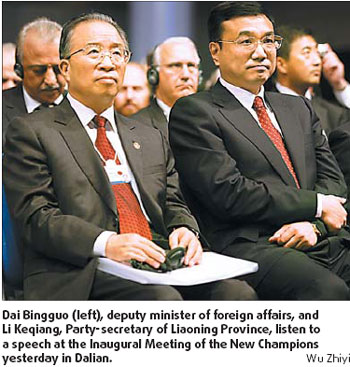Huge potential in private equity
Updated: 2007-09-07 06:23
Private equity (PE) is still in its infancy in China despite momentous growth, industry leaders said at the Inaugural Annual Meeting of the New Champions.
"PE in China is a great market but at a very early stage," John Zhao, CEO of Hony Capital, founded by Legend Holdings, Goldman Sachs, the Singaporean investment giant Temasek, said yesterday.
Michael Thorneman, partner of Bain & Company China, said $6 billion of PE funds had been invested in China so far this year and the country already had become world's second largest active market for PE investors.
In 2001, there were just some 40 PE deals in the market, the number had grown to 160 last year, according to Thomson Financial.

A report on PE in China released yesterday in Xiamen also said that in the first quarter, Asian PE firms investing in China raised $7.56 billion in funds, tripling that of one year ago.
Wu Xiaoling, deputy governor of the People's Bank of China, said the country should encourage domestic PE investments to consolidate domestic industries and increase their competitiveness.
She said domestic PE investment only accounted for 10 percent of the total PE funds, so there was a large potential.
Zhao with Hony Capital said his firm's funds were also very popular among investors and usually raised more capital than expected.
PE is believed to be a good channel to create value for shareholders.
Shan Weijian, managing partner of TPG Capital Group, who led a landmark investment into Shenzhen Development Bank as well as Chinese PC maker Lenovo Group, said his team helped Lenovo to acquire IBM's personal computer business in 2005 and even helped it find a CEO from Dell.
However, with a short history of PE in China, buyout firms have been facing many difficulties.
National security has been a concern for the Chinese government.
The heavyweight PE Carlyle Group has been trying to buy the Chinese construction machinery maker Xugong Group, but did not get approval from the government because of concerns over national security and differences on prices.
At the same time, exit also remains a headache for many PE firms.
(Shanghai Start 09/07/2007 page1)
|
|
|
||
|
||
|
|
|
|